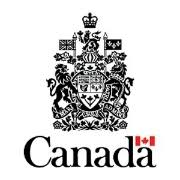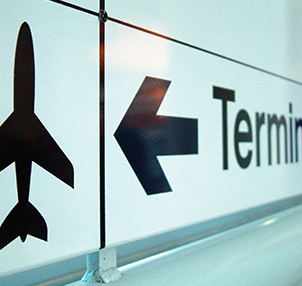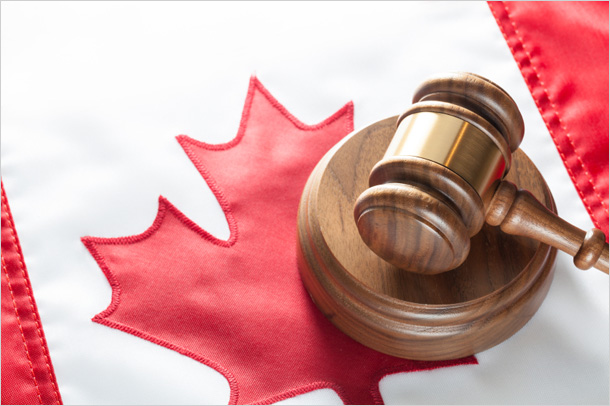IRB matters: dealt by [In-House] IRB Certified Counsel; likewise Federal Court matters dealt by Solicitors/Lawyers licensed by Law Society of Canada
J-Pier specializes in Complex Hearings, Detention Reviews, Criminal Inadmissibility and Rehabilitation Cases. (Including Visa Refusals).
We represent clients before Immigration Appeal Division relating to Sponsorship Refusals, Removal Orders, & Residency Obligations.
"IMMIGRATION AND REFUGEE BOARD OF CANADA (I.R.B)"

The Immigration and Refugee Board of Canada (IRB) is Canada's largest independent administrative tribunal. Responsible for making well-reasoned decisions on immigration and refugee matters
ADMISSIBILITY HEARINGS
The Immigration Division (ID) 'BRANCH' OF I.R.B - Conducts admissibility hearings for people believed to be inadmissible to, or removable from, Canada.
Grounds of Inadmissibility
- security grounds
- violating human rights
- serious criminality
- organized criminality
- health reasons
- financial reasons (unable to provide for oneself)
- misrepresentation
- failure to comply with the Act
If you have received a “Report Under Subsection 44(1)”, you may be required to appear for a hearing before the Immigration Division (ID) of the Immigration and Refugee Board (IRB).
A person may not be able to remain in Canada if the ID determines that the allegations in the “Report Under Subsection 44(1)” is well-founded.
Immigration Division (ID) holds a hearing for someone at the request of a Canada Border Services Agency (CBSA) officer, who will provide the “Report” to the ID.
The CBSA will then attend at the hearing to defend their allegations and will seek to have a Removal Order issued against the subject of the “Report”
"Do NOT risk your case without legal Opinions; we ensure to apply the right legal relief with appropriate Jurisprudence combined with critical submissions"
Contact us - We will be happy to assist"
----------------------------------------------------------------------------------------------------------------------------------------------------------------------
DETENTION REVIEWS:
Canada Border Service Agency (CBSA) will ask the member to have you stay in detention if they think that at least one of the following situations applies to you.
- Danger to Public
- Unlikely to show up when asked to do so, for example at a hearing or for your removal from Canada.
- Identity has not been established but can be.
- CBSA thinks that you might be inadmissible to Canada for security reasons or because of a violation of human or international rights, serious criminality, criminality or organized criminality.
Detention is a serious matter. Although you can represent yourself in your hearing, you may want to hire counsel to help you. Counsel can be a lawyer or a registered immigration consultant
"Your counsel will have the opportunity to respond and challenge any evidence contained in the allegations"
-----------------------------------------------------------------------------------------------------------------------------------------------------------
![]()


DEPARTURE ORDER
Left Canada without verifying your departure, or more than 30 days after the Departure Order was issued, the Departure Order automatically becomes a Deportation Order and you need an ARC
EXCLUSION ORDER
Returning to Canada before 12 months period after Exclusion Order was issued, or do not have a Certificate of Departure, you need ARC
DEPORTATION ORDER
Been the subject of a Deportation Order you will need an ARC.
"We can assist in filing [ARC] along with compelling reasons seeking your entry into Canada"
AUTHORIZATION TO RETURN TO CANADA [ARC]
Requesting Canada for permission to re-enter the country, despite having previously been asked to leave on a Removal Order. [Direction to Leave Canada is NOT a Removal Order; ARC is Not Applicable in this Case].
----------------------------------------------------------------------------------------------------------------------------------------------------------------------
CRIMINAL INADMISSIBILITY & REHABILITATION
Inadmissible because of past criminal activity - Few E.G
Driving Under Influence (D.U.I) including Reckless Driving Charges
Serious criminality, Theft / Larceny, Assault,Fraud etc..
Possession of controlled substances/drugs
We can assist you in Overcoming criminal inadmissibility to Canada through:
Rehab - Application (Permanent Relief) / Temporary Resident Permit [T.R.P] (Temporary Relief)
----------------------------------------------------------------------------------------------------------------------------------------------------------------------
HUMANITARIAN & COMPASSIONATE GROUNDS (H & C)
People who would not normally be eligible to become permanent residents of Canada may be able to apply on humanitarian and compassionate grounds.
Humanitarian and compassionate grounds apply to people with exceptional cases.
This type of applications are for those people who have no legal status in Canada yet they do not want to leave Canada and want to stay here.
To apply for H&C application:
You have to establish that you will suffer a life of extreme hardship if send to your home country
The best chance under H&C applications are for people that have lived in Canada first legally then they have become illegal due to their expired visa.
Due to the extent of establishment in Canada applicants do not intend to go back due to problems faced in their home countries.
"Meticulously Prepared Applications will increase your likelihood of acceptance"
----------------------------------------------------------------------------------------------------------------------------------------------------------------------
REFUSALS:
We can assist in drafting Reconsideration letters. If the refusal was based on an error in fact or in law 'ALSO'
Obtain Immigration Notes form IRCC Offices and Prepare submissions to concerns / Provide alternatives for re-submission(s) / Reconsideration(s) as applicable
OTHER SERVICES:
Out of Status Conversions and Corrections of Permits
Drafting and Proof Checking of your Submissions
----------------------------------------------------------------------------------------------------------------------------------------------------------------------
APPEALS TO IMMIGRATION APPEAL DIVISION (I.A.D)
SPONSORSHIP REFUSALS / REMOVAL ORDERS / RESIDENCY OBLIGATIONS FOR PERMANENT RESIDENTS
Sponsorship Refusals
If IRCC has refused the application of a Canadian citizen or a permanent resident to sponsor the immigration of a close family member to Canada, the sponsor may appeal to Immigration Appeal Division (I.A.D) - Branch of I.R.B
You can appeal any outland sponsorship application (i.e. your spouse or parents were outside of Canada when you submitted the application) provided you and the sponsored person(s) met the eligibility requirements.
If an overseas spousal sponsorship application has been refused, within a specific timeline, an appeal can be filed at the Immigration Appeal Decision to contest the refusal. An appeal should only be submitted if the application filed was strong and complete.
Taking the appeal route is an important decision as it can take some time to obtain a hearing date and another application following a refused appeal could ultimately always be refused.
A spousal sponsorship appeal is an appeal de novo meaning that the Board Member can consider new and updated evidence, which is submitted at the appeal.
It is important to understand the impact of appealing versus re-applying. Should the appeal option be chosen, the sponsor must understand that losing the appeal will result in the sponsor no longer being able to sponsor his or her spouse ever again given that the Immigration Appeal Division has already decided on this matter. We can help you make the right choice by examining all the facts.
If your application was refused because you the sponsor was ineligible to sponsor, or your spouse (or parents) was ineligible to be sponsored, you cannot appeal
You cannot appeal a refused inland sponsorship application.(INLAND - INSIDE CANADA)
However, you may apply to Federal Court for a Judicial Review of IRCC's Decision
The Federal Court Judge will review the negative decision and determine if there was an error in law or fact
----------------------------------------------------------------------------------------------------------------------------------------------------------------------

What is a Federal Court - Judicial Review [J.R]
An immigration appeal to the Federal Court is called an “application for leave” legally termed as “Judicial Review” (J.R) and is a two-step process.
The first step is to apply for leave, which means to have the case approved to go to a hearing. Not all immigration appeals to the Federal Court get to have a hearing before a judge, they must first be granted “leave”, or permission, to do so.
The application for leave process normally takes about 4 to 7 months, but may sometimes be longer depending on court’s work load.
Generally speaking all of the court filings that are part of the leave process are usually submitted to the court within 3 months, but it may take a judge several months to review the case and decide on leave, depending on the court’s work load and the availability of hearing dates.
If the court denies leave then the case will be dismissed and finally concluded. If the court grants leave, then a hearing will be scheduled within 90 days from the day that leave is granted.
Normally there is only one hearing before a judge to decide a routine immigration refusal decision. The hearing itself will likely take less than three hours.
Once the judge has heard the case, he or she might make an oral decision on the spot, but usually the judge will reserve their decision and issue a written decision at a later time.
Generally speaking the decisions of the Federal Court are issued quickly, within a week to a month, but may take longer depending on the complexity of the case and the workload of the particular judge.
Altogether, and combining the two steps, a Federal Court appeal usually takes between six months and a year from initiation to a final decision.
----------------------------------------------------------------------------------------------------------------------------------------------------------------------
Residency Obligations:
Canada requires permanent residents to be physically present in Canada for at least 730 days out of every five years.
If a permanent resident is outside Canada and a visa with IRCC finds that he or she has NOT met this residency obligation, the person may lose permanent resident status.
- IRCC officer outside of Canada decides that a permanent resident has violated his or her residency obligation.
- Permanent resident appeals decision to IRB within 60 days.
- IAD member holds a hearing: appellant may or may not be in Canada.
There are two possible outcomes of this hearing.
- One: Appeal is allowed and appellant retains permanent resident status. OR
- Two: Appeal is dismissed and appellant loses permanent resident status.
At this point, if appellant is in Canada, IAD issues removal order.
We can represent you before the Immigration Appeal Division (IAD). We will carefully examine the facts of your case and will prepare your appearance before IAD, emphasizing the relevant factors, including:
- The reasons you breached your residency obligations;
- Any attempts you made to return to Canada;
- Your degree of establishment and continuing connections to Canada;
- The best interest of your children and the impact the loss of your PR will have on them;
- The hardship and dislocation your family members will suffer if you lose your PR; and
- The humanitarian and compassionate circumstances of your particular case.
For more information, please contact us to discuss on how we can assist you on your residency appeal.
----------------------------------------------------------------------------------------------------------------------------------------------------------------------
REFUGEE PROTECTION DIVISION (R.P.D)
- Refugee Claims
- Protected Person Status
Assistance in application filing to Private Sponsors / Community Sponsors / Group of Five(G5)
REFUGEE APPEAL DIVISION (R.A.D))
- Appeal hearing on Refugee Refusal Cases
----------------------------------------------------------------------------------------------------------------------------------------------------------------------
PRE-REMOVAL RISK ASSESSMENT - REFUGEE CLAIMS IN 'CANADA'
If you are facing removal from Canada, you may be eligible for a pre-removal risk assessment.
Applications are generally assessed based on:
- risk of persecution as defined in the Geneva Convention,
- danger of torture, and
- risk to your life or the risk that you may be subjected to cruel and unusual treatment or punishment.
Certain applications, such as those from persons who are inadmissible for serious criminality, are assessed only with respect to danger of torture and risk to life / risk of cruel and unusual treatment or punishment.
Approved PRRA Applications are granted 'Protected Persons' Status leading to 'Permanent Residency'
Rejected applicants must leave Canada. They may apply to the Federal Court of Canada for a "Review of PRRA Officer's Decision"
Effective Submissions are critical to increase the likelihood of Grant [approval]
We will be pleased to discuss the matter and to comprehensively analyse the possibility of PRRA
*********************************************************************************************************************************
INADMISSIBILITY - ELIGIBILITY FOR REHABILITATION
The table below explains when a person may be deemed rehabilitated and is eligible to apply for parole.
|
Conviction or offense |
Rehabilitation period |
|
|
When deemed rehabilitated |
When eligible to apply for rehabilitation |
|
|
Conviction of an offense outside Canada that, if committed in Canada, would be an indictable offence punishable by a maximum term of imprisonment of less than ten years |
At least ten years after completion of the sentence imposed |
Five years after completion of the sentence imposed |
|
Commission of an offense outside Canada that, if committed in Canada, would be an indictable offense punishable by a maximum term of imprisonment of less than ten years |
At least ten years after commission of the offence |
Five years after commission of the offense |
|
Conviction or commission of an offense outside Canada, that, if committed in Canada, would be punishable by a maximum term of imprisonment of ten years or more |
Not applicable |
Five years from completion of the sentence or commission of the offense |
|
Conviction for two or more offenses outside Canada that, if committed in Canada, would constitute summary conviction offences |
At least five years after the sentences imposed were served or to be served |
Not applicable |
|
Conviction for two or more summary conviction offenses in Canada |
At least five years after the sentences imposed were served or to be served |
Must apply for a pardon |
|
Conviction for two or more indictable offences in Canada |
Not applicable |
Must apply for a pardon |
**If you need help in any of the legal Services outlined here; reach us directly, we will be pleased to assist**

